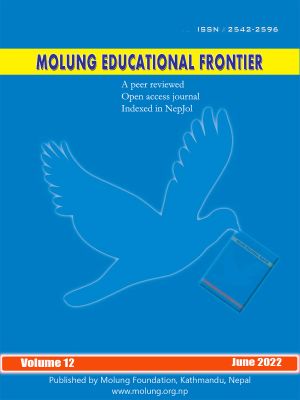American Indian Ideologies in The Round House
DOI:
https://doi.org/10.3126/mef.v12i01.45921Keywords:
windigoo, folklores, ideologies, indigenous, colonialism, Ojibwe-cultureAbstract
This paper focuses on the ideologies in the Native American context as represented in Louise Erdrich’s The Round House. In this paper, I intend to examine the connection between the change in the belief system and its effects on the socio-cultural practices of indigenous communities. I argue that behind the ethical crisis and change in indigenous ideologies, these elements play the keyholes: the imposition of foreign values in the interest of colonial authority, intercultural interactions, and the rise of individualism due to the loss of indigenous cultural memory. One of the key elements that keep the indigenous ideologies alive is folklore. Traditionally, the indigenous folklores work as effective means to circulate the ideologies that shape the lifestyle of the Native American people. However, due to the external influences, the story listening culture has declined, and its impact surfaces as ecological crisis and changes in their way of living. The consequences of the ethical crisis manifest in the key principles that guide the tribal lifestyle. For instance, ecological sustainability, collective responsibility, and social welfare influence the shifting belief system that promotes individualism, materialistic gain, and competitiveness. Similarly, colonial intervention promotes capitalism by exploiting natural resources and adopting other unethical means. To testify to my assumption, the ethical degeneration in the Native American society as the effect of the loss of indigenous ideological impact, I have examined The Round House and the folklores narrated within it.
Downloads
Downloads
Published
How to Cite
Issue
Section
License
© Molung Foundation




